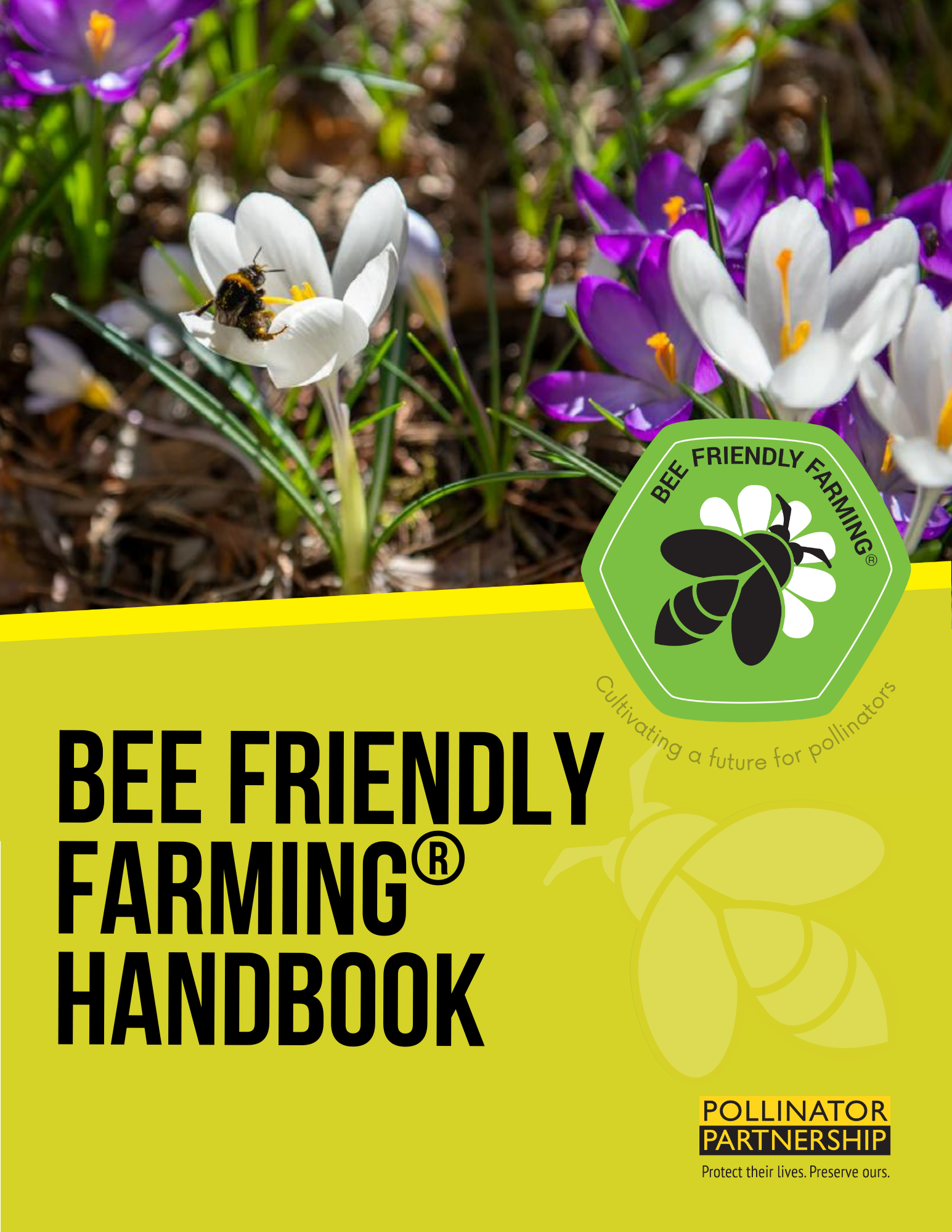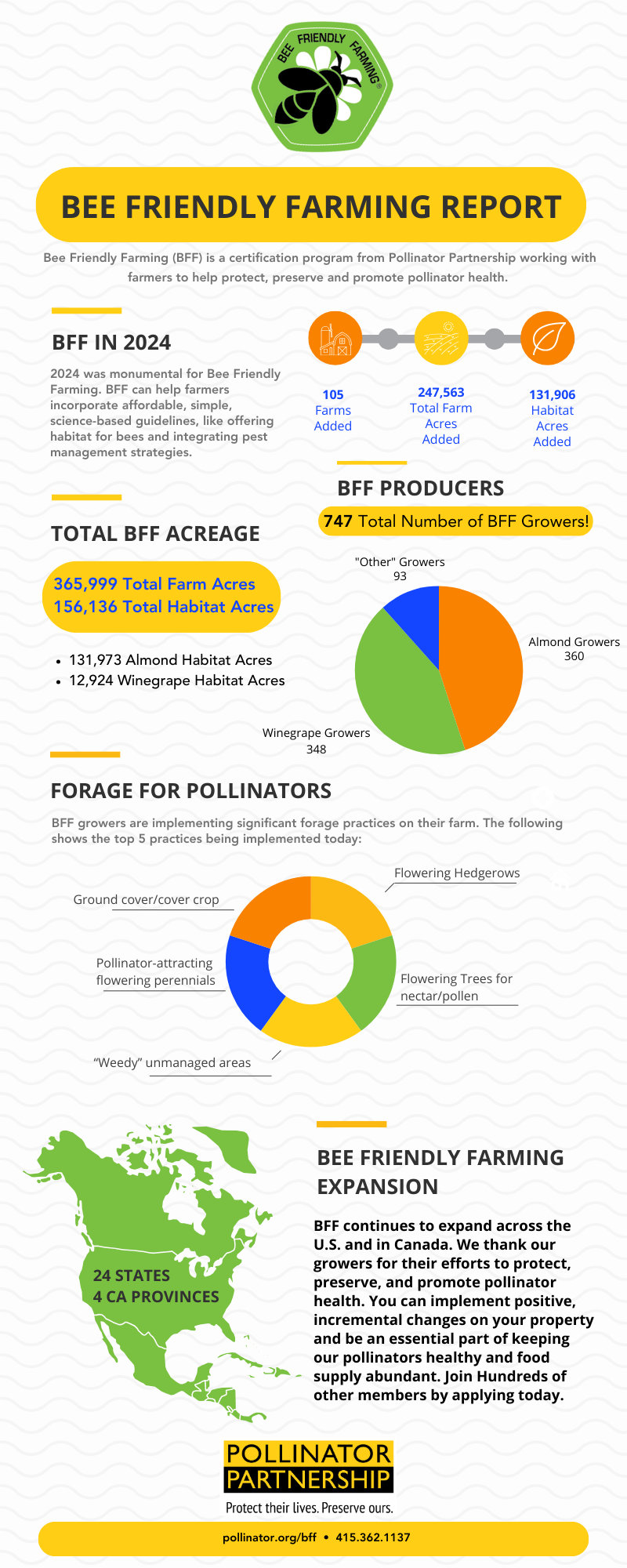Bee Friendly Farming
Become a Bee Friendly Farmer and help support bees and other pollinators
The Bee Friendly Farming (BFF) Program recognizes, engages, and supports BFF participants and pollinators everywhere. By becoming a BFF Program member, you can help preserve and protect the pollinator populations by implementing positive, incremental changes on your property. BFF helps farmers incorporate affordable, simple, science-based guidelines, like offering nutrition and habitats for bees, and integrated pest management strategies. Program members are an essential part of keeping our pollinators healthy and food supply abundant. Join hundreds of other members by applying today.


